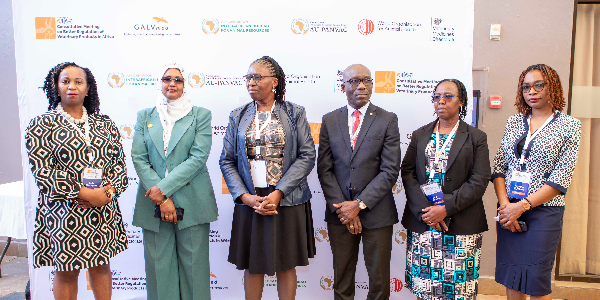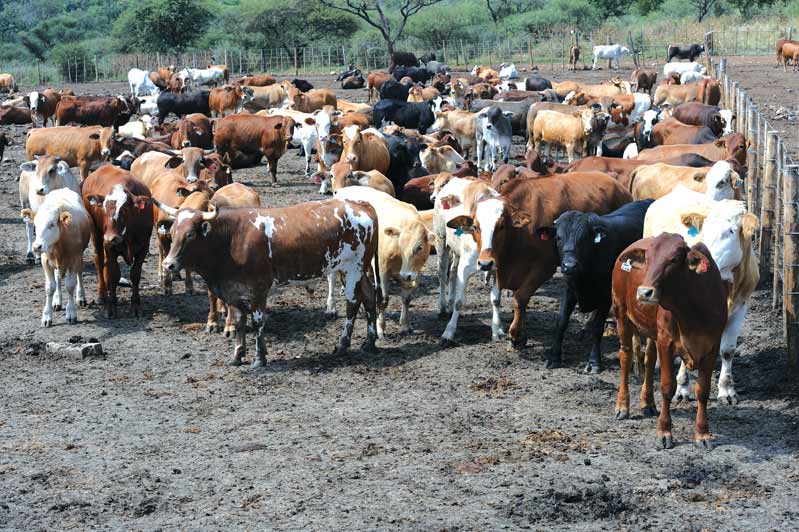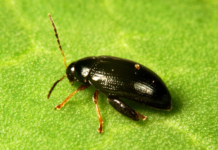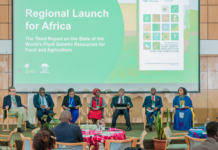The African Union Commission, through the African Union Inter-African Bureau for Animal Resources (AU-IBAR) and the African Union Pan African Veterinary Vaccine Centre (AU-PANVAC), with support from GALVmed, WOAH and UK VMD, has concluded a three-day consultative meeting aimed at strengthening veterinary product regulation across Africa.
The session brought together Heads of National Regulatory Authorities, Chief Veterinary Officers, Regional Economic Communities and development partners to discuss how to improve access to safe, effective and affordable veterinary products for livestock keepers in Kenya and across the continent.
The meeting reviewed the findings of a GALVmed-commissioned study on creating a Network of Regulatory Authorities to support harmonized oversight of veterinary products. At the same time, the partners endorsed the establishment of the Pan-African Regulatory Authorities Network for Veterinary Products (PARAN-VPs), which will guide continental cooperation on veterinary product regulation.
Over the next 24 months, the partners will finalize the network’s terms of reference, governance framework and implementation roadmap.
In hindsight, Africa’s livestock sector supports more than 350 million people. In Kenya alone, the sector contributes 12% of the country’s GDP, and accounts for 42% of agricultural output. Yet many countries continue to face widespread circulation of substandard and falsified veterinary products, varying levels of regulatory capacity, high dependence on imported medicines and the escalating threat of antimicrobial resistance.
These issues have long slowed productivity and undermined efforts to eradicate transboundary diseases such as PPR. Earlier this year, veterinary experts reached an agreement on registration requirements for PPR vaccines under the continental eradication programme, showing that harmonised approaches are both possible and beneficial.
The proposed Pan-African Regulatory Authorities Network for Veterinary Products (PARAN-VPs) will now serve as a continental platform for regulatory cooperation, helping countries align standards, share information and strengthen oversight of veterinary medicines.
It will also be mandated to develop harmonized regulatory guidelines, support national authorities in building effective systems, and coordinate activities including quality control, surveillance and approval decisions that are best handled collectively rather than by individual AU member countries.
Following the endorsement, the African Union and partners invite all stakeholders to engage in shaping the implementation roadmap for PARAN-VPs.
Speaking during the session in Nairobi, GALVmed’s CEO Dr. Lois Muraguri called for collective action to prioritise the needs of smallholder farmers.
“Millions of farmers depend on livestock for daily income. When the quality of veterinary products is inconsistent, they bear the cost. Harmonised regulation will help ensure that safe and effective products reach the people who need them most and will make the market more predictable for manufacturers and regulators alike.” She said.
She said that clearer, predictable and harmonised regulatory systems would help reduce the high cost of veterinary products and encourage more investment in local manufacturing.
On her part, Dr Huyum Salih, Director of AU-IBAR, noted that many countries still depend on human-medicine regulatory frameworks because of limited capacity, leading to delays and uneven standards. She warned that the absence of a coordinated system costs the continent billions in lost livestock potential.
“Africa loses an estimated USD 4 billion every year due to unrealised livestock potential. A coordinated regulatory framework will help close this gap by protecting farmers from poor-quality products and strengthening countries’ ability to manage disease threats,” Dr Salih said.
Participants also noted the impact of misinformation on public health interventions. Kenya’s recent vaccination drive, for instance, faced resistance due to mistrust and circulating false claims, reinforcing the need for clearer communication, stronger oversight and certified vaccine production facilities.
The meeting also highlighted the importance of reinforcing regulatory capacity to monitor, inspect and certify products entering national markets, while several NRAs underscored the strain caused by fragmented requirements across member states.








